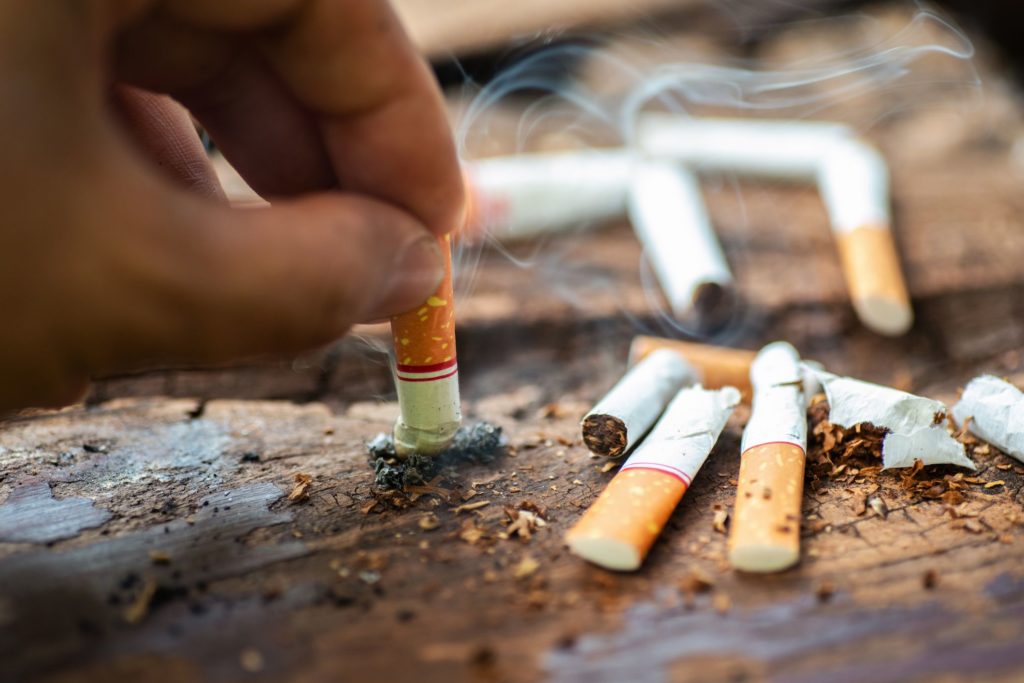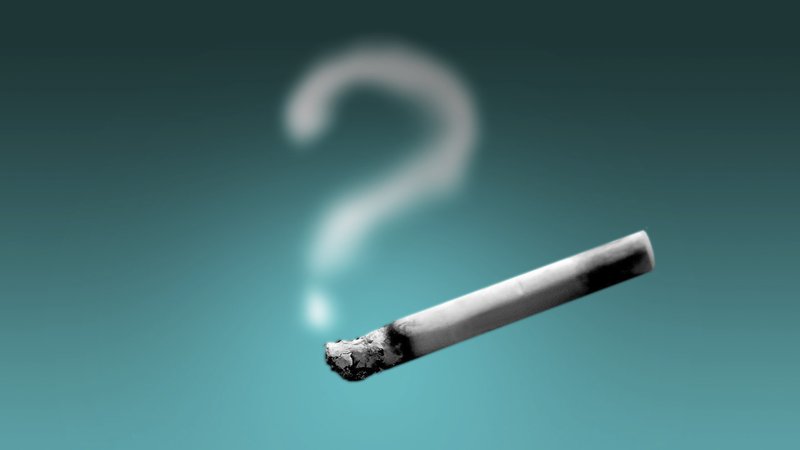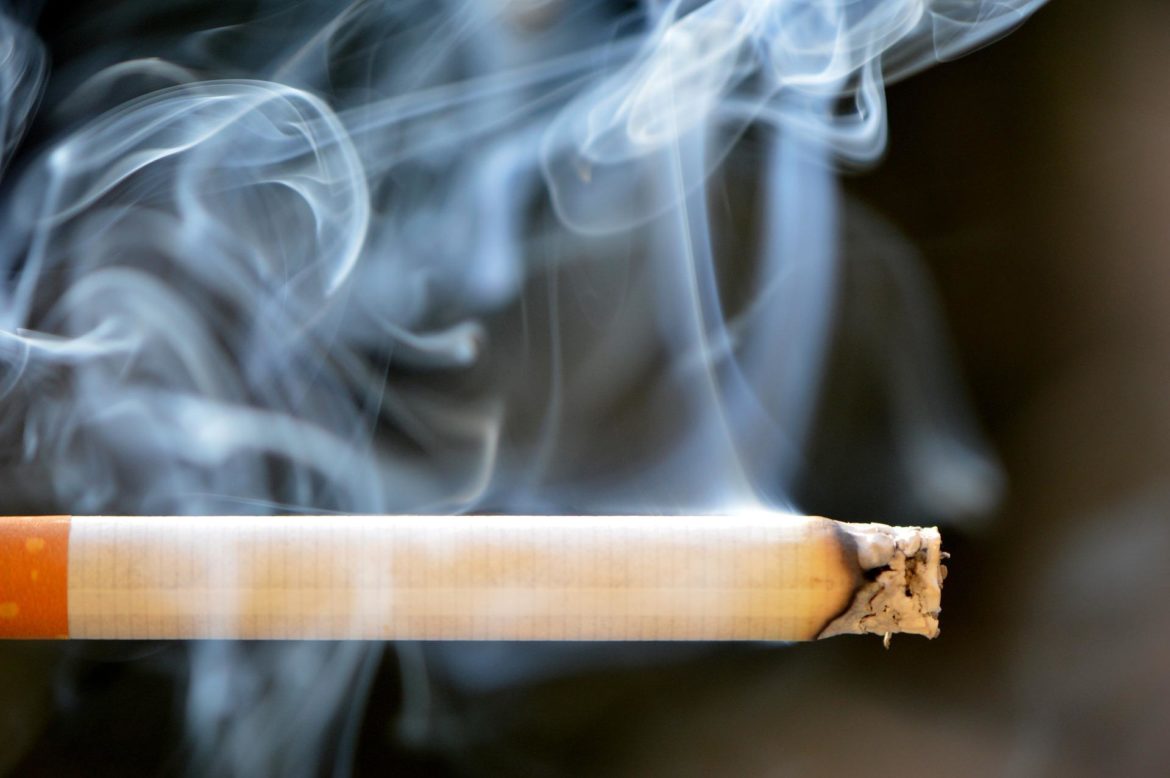Smokers of tobacco increase a person’s risk of COVID-19 infection, as well as the severity of the disease, according to a study published in the journal Thorax

Researchers from King’s College London collected data from 2.4 million users of the COVID Symptom Study App. Users self-identified as smokers or non-smokers when they first started using the app. Each day between March 24 and April 23, 2020, users reported their physical condition and answered a series of questions including a report on 14 potential COVID-19 symptoms, hospital attendance, and COVID-19 test results.
Current smokers were 14% more likely than non-smokers to experience fever, persistent cough, and breathlessness. Smokers also appeared to experience more symptoms. Current smokers were 29% more likely to report more than five symptoms associated with COVID-19, and 50% more likely to report more than 10.https://8ccfa8a91bce33168d8aa7377160d308.safeframe.googlesyndication.com/safeframe/1-0-37/html/container.html The Facts About COVID-19 and Pre-Existing Conditions
“Naturally, everybody is sort of running toward the fire to put it out and focusing every available health care resource on trying to control the pandemic,” study co-author Dr. Nick Hopkinson, who is the medical director of the British Lung Foundation, tells Verywell. “When people are thinking about prevention, they tend to think about things that will happen a long way down the line and it always seems more important to focus on acute treatment. But if you invest in smoking cessation, you get returns within that year.”https://8ccfa8a91bce33168d8aa7377160d308.safeframe.googlesyndication.com/safeframe/1-0-37/html/container.html
What This Means For You
If you are a current smoker, you may be at higher risk for experiencing a severe case of COVID-19. Experts say that people who quit smoking can experience positive health effects within a week, including improved lung and immune system health. If you’re concerned about COVID-19 risk, talk with your doctor about ways to quit or manage your smoking.
How Smoking Impacts COVID-19 Infection
Studies from early on in the pandemic suggested that smokers experience a lower risk of COVID-19 infection, based on the number of smokers researchers recorded in hospitals. Others claimed that nicotine could be a useful therapeutic option for decreasing inflammation.2 Sven Eric Jordt, PhD, associate professor in anesthesiology at Duke University School of Medicine in North Carolina, says that these studies had poor methods and were misleading about the harms of smoking. This new study, he says, is better aligned with what decades of research show about the effects of smoking.https://8ccfa8a91bce33168d8aa7377160d308.safeframe.googlesyndication.com/safeframe/1-0-37/html/container.html
“This is correcting those earlier studies which were very poorly done,” Jordt tells Verywell. “Smoking makes things worse—it makes you more susceptible and leads to poor outcomes compared to non-smokers.”Air Pollution Exacerbates COVID-19 Mortality, Study Finds
Smoking can damage airways, harm immune response, and make the lungs more susceptible to infection.3 Inhaled toxins and smoke from cigarettes and e-cigarettes can make white blood cells less effective at recognizing and neutralizing pathogens. Jordt says that weakening the immune system in this way often makes it more challenging for the body to combat viral infections, like influenza and COVID-19.
This means smokers who are exposed to the virus are more likely to develop a severe infection. The King’s College study indicates that current smokers who tested positive for the virus are twice as likely to be hospitalized for the illness.
Though bleak, Hopkinson says some of the negative effects of smoking decrease almost immediately after cessation. The decision to quit smoking during the course of the pandemic can have quick and significant implications for your likelihood of developing lung and heart disease, as well as developing severe illness from COVID-19.
Can you get the Coronavirus from secondhand smoke?
Can you get coronavirus from secondhand smoke?

Secondhand smoke isn’t believed to directly spread the virus, experts say, but infected smokers may blow droplets carrying the virus when they exhale.
Being able to smell the smoke might be a red flag that you’re standing too close to the smoker. The respiratory droplets people spray when they talk, cough or sneeze are believed to be the main way the virus spreads. And people also exhale those droplets when smoking, as well as when they’re vaping.
“Not only are they potentially spreading virus by not wearing a mask, they are blowing those droplets to the people around them to potentially get infected,” says Dr. Albert Rizzo, chief medical officer for the American Lung Association.
You should steer clear of secondhand smoke regardless. Breathing in secondhand smoke from cigarettes can cause various health problems, according to the U.S. Centers for Disease Control and Prevention.





